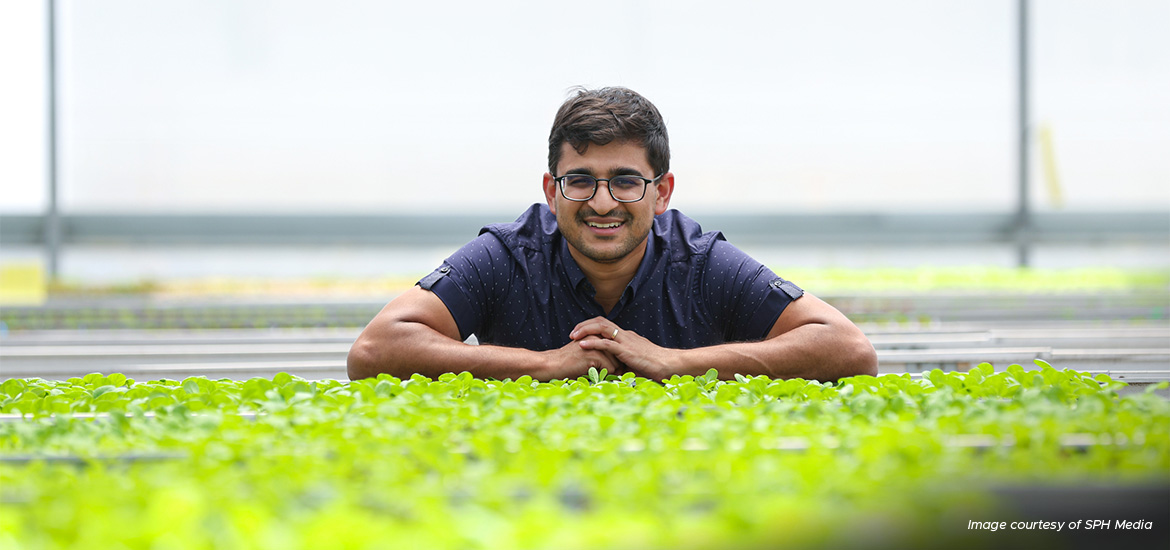Agrocorp actively participates in food supply tenders for developing markets, such as Pakistan, Bangadesh and Ethiopia, where it is often the sole participant. Vijay sees these efforts as key in helping to ensure the continuity of food supply. “Some of these countries face severe impact from global warming. In Bangladesh, rising sea levels reduces their liveable area. Pakistan has been devastated by floods.
“While we’re in the implementation phase, there is a cost to developing a more sustainable food supply chain. But eventually as the process becomes established and scale builds up, there would no longer be an issue of increasing costs.
“The entire ecosystem is shifting. As a company we are nimble and we adjust to changing demand and geopolitical situations. To a certain degree, the company would have taken the (sustainability) path, even if I weren’t so intimately involved. But for me it’s an area of focus.’’
The group has secured sustainability loans, an explicit recognition of its efforts. There is an eight-year US$32.5 million facility with the International Finance Corporation to sustain the flow of nutritious and calorie-rich staples to Bangladesh.
There is also a US$50 million borrowing base facility with FMO, a Dutch entrepreneurial development bank, and Rabobank to support Agrocorp’s efforts to serve food-challenged markets. The facility has two tranches – FMO is to cover prepayments and inventory and Rabobank finances receivables and acts as facility agent.
Vijay notes that banking has become more challenging than in the past, but at a time when institutions are under pressure to lend to sustainable businesses, the firm may well find lenders lining up. At the time of the interview, Vijay was in discussions to convert an existing facility into a green loan, “which is not that difficult for us to do’’. “We’re able to prove quickly that our activities have a strong environmental footprint because we are market leaders in products such as pulses which have a strong function in returning nitrogen to the soil and providing protein as a core, stable product. We find there is a strong push from our lenders to have an environmental component built into their facilities.’’
Technology is a key enabler in multiple dimensions, such as raising crop yields and improving flavours in its plant protein business. “In a facility like LivFresh, we use modern farming technology to achieve high yields in a small space. In protein extraction, if there is 25 per cent protein, how do we get all that protein extracted into a powder that manufacturers can use?’’ Tech, he says, also plays a role to enable the firm to mimic flavours, tastes and textures of plant-based products.
Tech of course enables the quantification, reduction and monitoring of carbon emissions.
Agrocorp’s size and extensive business relationships keep the second-generation executives on their toes. Vijay points to his father as a role model for both his family and business. “Even today, he’s the first in and last out; his attention to detail is very impressive. We try to emulate some of those aspects, but we also try to each bring unique perspectives.
“He’s always interested in our views and respects our decisions. That has been important for us in building a healthy environment for a family to be in business together.
“We don’t want to rest on our laurels and bank on the fact that we have the market share. We have to make sure we keep working to provide value to our customers. We have to keep growing and looking at new initiatives.’’
BFI msg:
Next-gen leaders in family firms have an advantage in driving innovation. They have a long-term vision, and can leverage established business relationships, deep industry knowledge and existing operational capabilities to implement innovative ideas that will maintain their family’s legacy, while creating positive long-term impacts for their community.
Associate professor Kenneth Goh, Academic Director, Business Families Institute, Singapore Management University
Source: The Business Times © SPH Media Limited. Permission required for reproduction.








